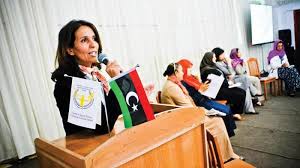
Libya is set to host its first International Digital Conference on Violence Against Women in November, a pioneering event dedicated to tackling online abuse and gender-based discrimination.
The University of Benghazi will serve as the venue for the gathering, which aims to bring global attention to the legal, social, and psychological challenges posed by digital violence.
Organized by the university’s Women’s Support and Empowerment Office, the conference will attract researchers and academics from across the world to exchange knowledge and propose solutions.
Reem Abrik Al-Warfali, a member of the scientific committee, described the international participation as “important and honorable,” noting that 72 academic contributions have already been received from Kuwait, Algeria, Tunisia, Morocco, Egypt, Iraq, and Malaysia, alongside submissions from Libyan cities including Benghazi, Tripoli, Sirte, Misrata, Sabratha, Tobruk, and Derna.
“The enthusiasm demonstrates the growing interest of researchers in a subject that transcends national borders and concerns all societies,” Al-Warfali said.
The conference will feature selected studies that adhere to strict criteria of originality, scientific relevance, and practical value. Several papers examine the evolution of legislation addressing digital violence, comparing international and regional approaches.
Others explore the social and psychological consequences, highlighting the impact of online abuse on victims’ mental health and fundamental rights.
Al-Warfali emphasized that the conference is designed to serve as a platform for dialogue and expertise exchange, with the goal of promoting public policies and community initiatives.
Organizers hope the event will catalyze the creation of specialized committees or research centres focused on cybersecurity and the protection of women.
In a country grappling with institutional divisions and insecurity, hosting the conference in Benghazi carries symbolic weight. It underscores the commitment of academics and civil society actors to prioritise women’s rights and digital safety within Libya’s national discourse, while also connecting the nation to an international conversation on combating online gender-based violence.
The conference represents a significant step in addressing an issue increasingly recognised as a global threat, positioning Libya as a platform for pioneering dialogue on women’s digital security.



